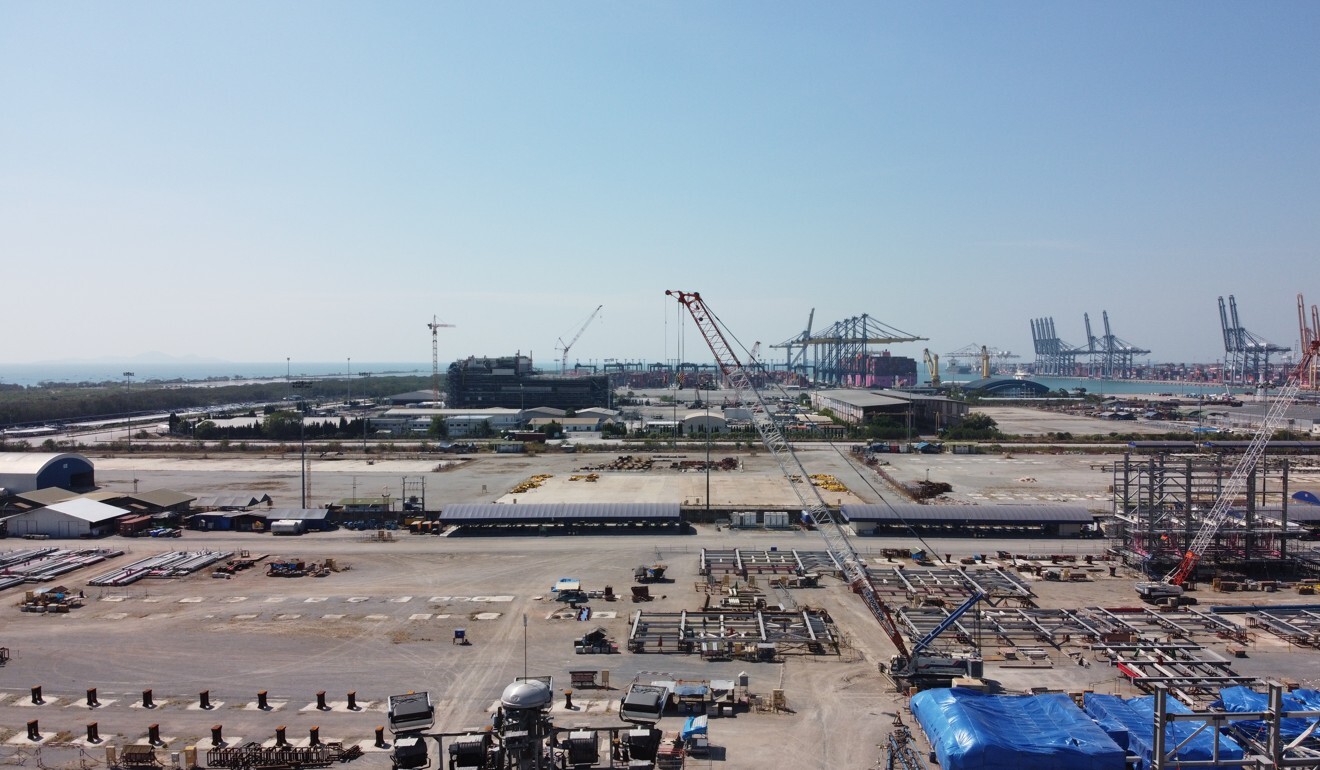
As the coronavirus pandemic bites, Thailand is desperate for its US$43 billion Eastern Economic Corridor to pay off
- Four years after its launch, opinion is divided as to whether the EEC will become a tech hub that lures the brains and billions of Asia – or a cripplingly expensive white elephant
- With the kingdom’s economy hammered by Covid-19, PM Prayuth needs a win, but a lack of transparency has left locals worried they will miss out on benefits from the project
The project, which promises an investor’s paradise of green smart cities and tax-free industrial zones powered by 5G technology, is Thailand’s most ambitious investment scheme. Driven by the government and its big-business allies such as energy giant PTT and the CP Group conglomerate, the vision for the EEC is to pull companies and technology from China, Japan, Hong Kong and Singapore to the kingdom’s eastern coast on the Gulf of Thailand, transforming it into the gateway to the vast Southeast Asian market.
Electric cars, robots and fruit will spill out from its transport points, according to the EEC’s glossy marketing literature, while high-end visitors seeking medical and wellness tourism will pour in as scruffy cities are transformed into green oases.
“This is the year we will reap what we sowed when we started,” EEC secretary general Kanit Sangsubhan told This Week in Asia, predicting that US$10 billion to US$13 billion in government and private money would be pumped into infrastructure and urban development over the next 12 months.

Alibaba, Great Wall Motors and Huawei are among the A-list Chinese companies to have bought in so far, building bases and bringing in expatriate staff. Alibaba owns the Post.
In Bangkok visit, China’s Wang Yi seeks to cast Beijing as Thailand’s ‘big friend’
When China’s foreign minister Wang Yi visited Thailand in October, the countries agreed to establish a “fast lane” travel corridor to facilitate the flow of people, and a corresponding “green lane” for goods.
In anticipation, land prices near the U-Tapao International Airport – set for a US$10 billion upgrade to become an international hub – and close to Leam Chabang, the country’s biggest port, are soaring.
The airport and port flank Pattaya – the colourful resort city in Chonburi province – which is also hankering after a refit following the pandemic’s decimation of its tourist-based economy.

02:37
Thai demonstrators gather near UN office calling for action against royal insult law
With Thailand’s overall GDP for last year expected to contract 6 per cent due to Covid-19, and amid record unemployment and a still-roiling pro-democracy movement, Prime Minister Prayuth Chan-ocha is desperate for a win. The ex-army chief, a divisive figure in the country, seized power in a 2014 coup and pushed through legislation for the EEC without any political opposition, well before elections in 2019 saw him return as a civilian leader.
But while the government is banking on the project, uncertainty on its direction and impact is mounting.
“I wish the EEC can provide a legacy for this government, but I’m afraid it will become a white elephant,” said Pavida Pananond, an associate professor at the Thammasat Business School, who warned that it was no longer of use to Thailand if foreign companies arrived for tax breaks and cheap labour.
Thailand ramps up use of royal insult law, further stoking dissent among activists
“Foreign direct investment of the future will not be the same model that drove Thailand forward in the 1980s and 1990s,” Pananond said, referring to the years when billions were spent turning the country into a car and electronics manufacturing base. “The supply chain is going to be much more digital oriented and more value added … it needs technology and high-skilled input.”
Hooking onto China also comes at a price. Prayuth has been pressed by Beijing to push through delayed multibillion-dollar high-speed rail lines that would link southern China to the EEC, while residents of Chonburi province are increasingly concerned that their home is about to be reshaped without their consultation as the kingdom is hungry for foreign cash at a time when Covid-19 has frozen investment.

“There’s almost zero communication about what we’re going to get from it,” said Krid Kanjanakit, a Pattaya resident and business owner. “We don’t know the timelines, when they’re going to start, finish or how we can prepare for it.”
Ultimately, analysts say, the lack of transparency could see taxpayers’ money flow into the pockets of Thai conglomerates and foreign middle managers rather than to those who live in the area. The game is rigged against locals, according to veteran pro-democracy politician Chaturon Chaisang.
“For a project this big there has not been enough transparency and information. Local people aren’t going to benefit, investors will buy up land before the project starts and then they’ll change it to an industrial zone, which is much more valuable,” he said.
But with the economy stumbling anew over a partial lockdown imposed to curb the country’s second wave of Covid-19, Thailand has few choices – and the promise of hundreds of thousands of jobs in avionics, logistics, robotics and health care have some hoping for better pay and prospects once the project takes off.
“There’s a risk of people coming in and taking Thai jobs,” said Kanyanat Muenyuth, a 19-year-old vocational college student in Pattaya who studies marketing. “But the economy is in trouble, so it’s also an opportunity.”
